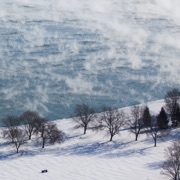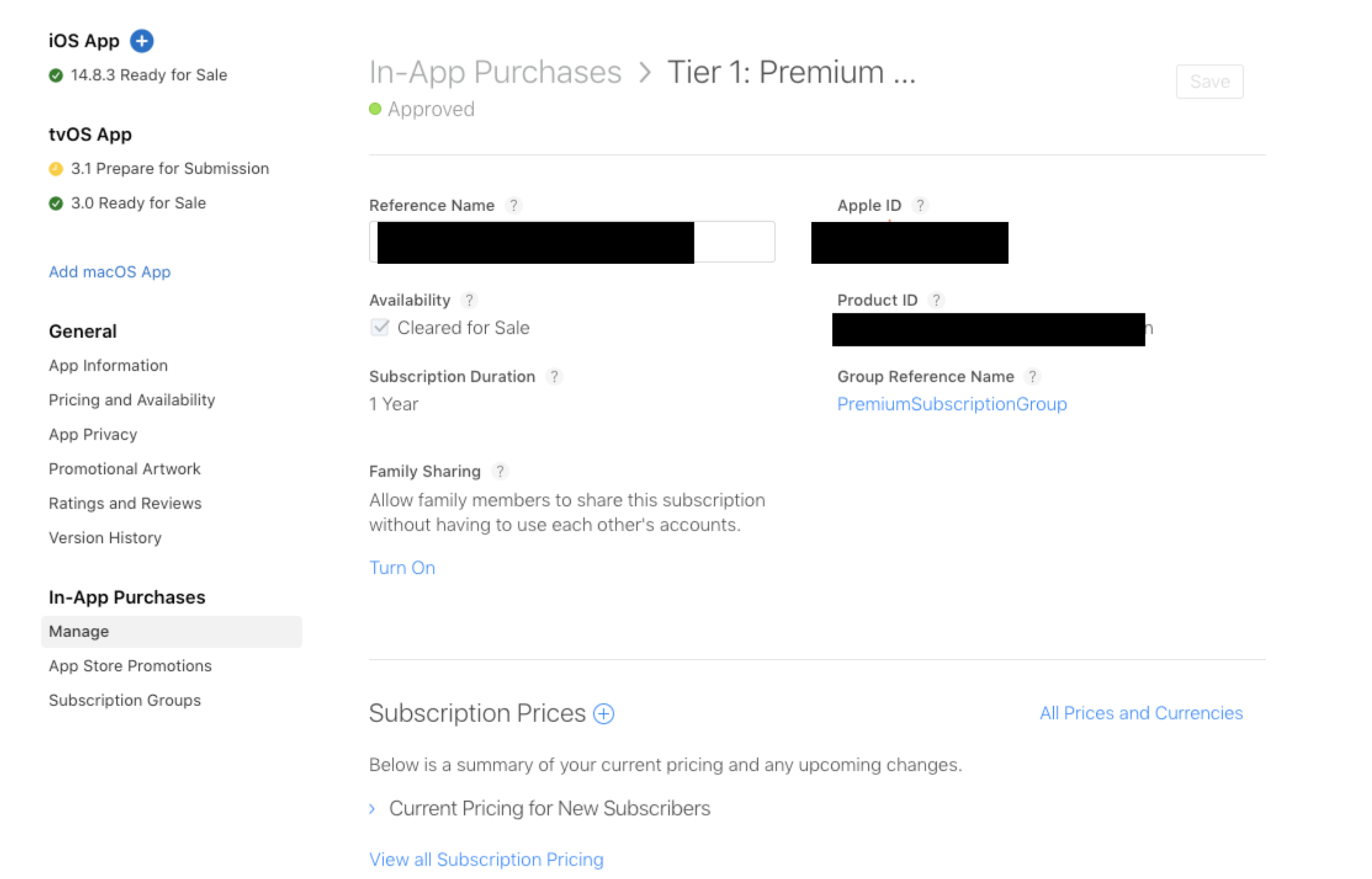AccuWeather meteorologists are available 24/7 to provide further insights and updates on evolving weather conditions. Please contact pr@accuweather.com during regular business hours, or support@accuweather.com or call AccuWeather’s Media Hotline at (814)-235-8710 at any time to arrange interviews with AccuWeather experts or to request the most updated graphics for print or broadcast.
First Heat Wave of the Year Headed to the Northeast, Heat Building in the West
June 11, 2024
> Millions of people in the Northeast and mid-Atlantic are expected to experience
the first round of 90-degree days this season starting next Monday
> The heat dome will continue to bake parts of the Southwest and interior
Northwest this week
> Increased demand on the power grid to run air conditioners and cooling
equipment
AccuWeather Global Weather Center – June 11, 2024
Rising temperatures across much of the Northeast and mid-Atlantic next week will lead to a surge in electricity demand for cooling.
“Get ready, this will likely be the first heat wave of the season for cities like Philadelphia and Washington, D.C.,” said AccuWeather Chief On-Air Meteorologist Bernie Rayno.
AccuWeather expert meteorologists say widespread temperatures soaring from the mid-80s into the mid-90s will arrive in the Northeast Monday.

“From Monday through much of next week, home-grown high pressure will build over the region while the jet stream bulges northward,” said AccuWeather Meteorologist Brandon Buckingham. “This one-two combination will set the stage for building heat and an uptick in humidity levels. For many, this will be the first heat wave of the year.”
Light winds and coastal breezes may keep temperatures 10 to 20 degrees lower in major coastal cities like Boston and New York City, compared to areas several miles inland.
"Aside from the possibility of a shower or gusty thunderstorm from a cold front late this week, areas that miss out on the rain could have a stretch where it does not rain at all for seven to 10 days or more," said AccuWeather Senior Meteorologist Dave Dombek. "The dryness will help temperatures surge during the day, as the sun's energy won't be used up evaporating moisture from the ground."
Rainfall across much of the Northeast since March 1 was 100 to 150 percent of the historical average, but parts of the Northeast were very wet during March, with 150 to 300 percent of rainfall compared to the historical average.
AccuWeather’s team of long-range forecasters warned of a higher demand for electricity to run air conditioners and cooling equipment across the nation this summer in the AccuWeather 2024 U.S. Summer Forecast. New York City, Boston, Philadelphia, and Washington, D.C., are all forecast to experience more days reaching 90 degrees or hotter this summer, compared to 2023.
Resurgence of Heat Across the West
As AccuWeather expert meteorologists have been warning for the past week, a persistent and intense heat dome will continue to bake parts of the Southwest and interior Northwest this week, raising the risk of heat-related illnesses.
AccuWeather expert meteorologists say sweltering heat could challenge daily high-temperature records through Thursday.
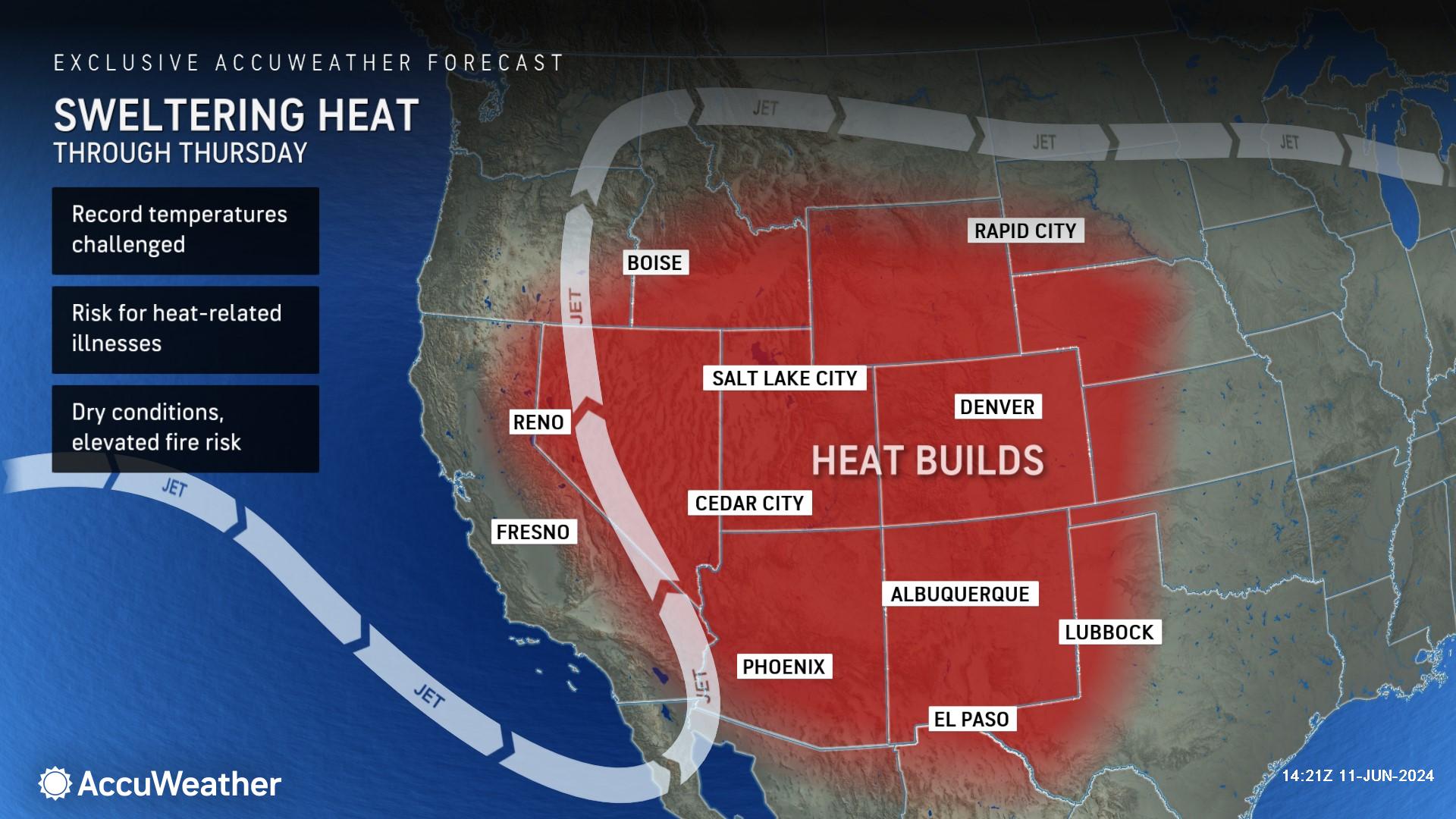
> AccuWeather is forecasting a high temperature of 110 degrees in Las Vegas,
Nevada, Wednesday, approaching the record of 113 degrees set last year.
> AccuWeather is forecasting a high temperature of 95 degrees in Denver,
Colorado, Wednesday, approaching the record of 97 degrees set in 1952.
> AccuWeather is forecasting a high temperature of 100 degrees in Albuquerque,
New Mexico, Thursday, which would tie the record set in 2021.
> AccuWeather is forecasting a high temperature of 101 degrees in Salt Lake City,
Utah, Thursday, flirting with the record of 102 degrees set in 2021.
> AccuWeather is forecasting a high temperature of 109 degrees in El Paso, Texas,
Thursday, which would break the record of 106 degrees set in 1980.
People in these areas experiencing triple-digit heat are encouraged to drink plenty of fluids to stay hydrated, wear lightweight and loose-fitting clothing, and take breaks in air-conditioned rooms or shaded areas.
Heat waves on average kill more Americans than any other type of severe weather such as tornadoes, hurricanes, floods, and lightning. To draw attention to this important weather risk, AccuWeather introduced its own heat index last year to help people better understand the severity, intensity, and duration of heat waves: the AccuWeather HeatWave Counter and Severity Index™.
Wildfire Risk
Parts of Arizona, New Mexico and Colorado face a high risk of wildfires through Thursday.
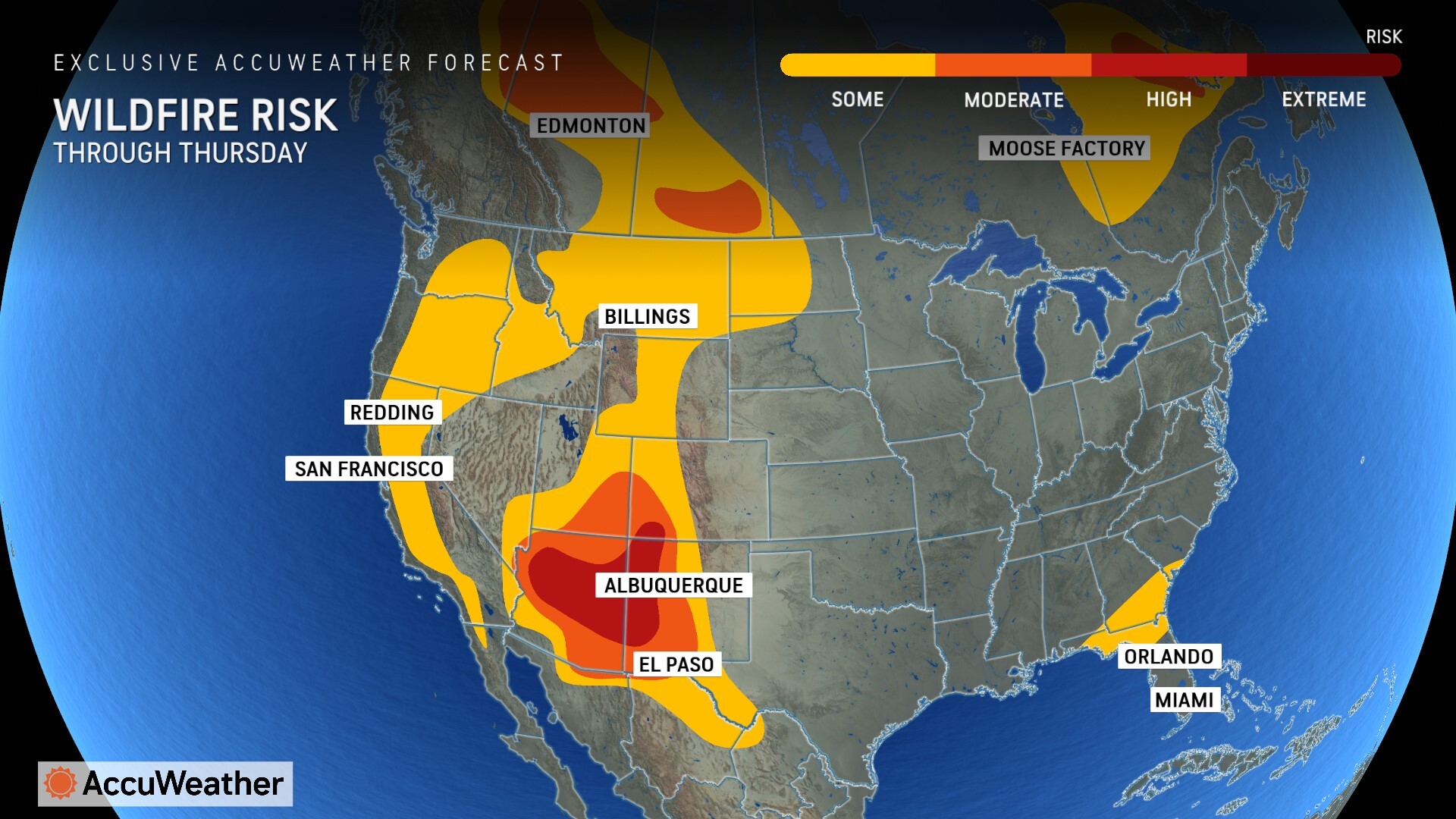
Parts of interior California, Oregon and Washington also face some risk of wildfires igniting through Thursday as temperatures climb and vegetation dries out.
AccuWeather expert meteorologists say a dip in the jet stream will push inland over the West from the middle to late part of the week. Dry thunderstorms could erupt over the Great Basin and desert areas. Storms that produce lightning yet little rainfall will increase the risk of wildfires.
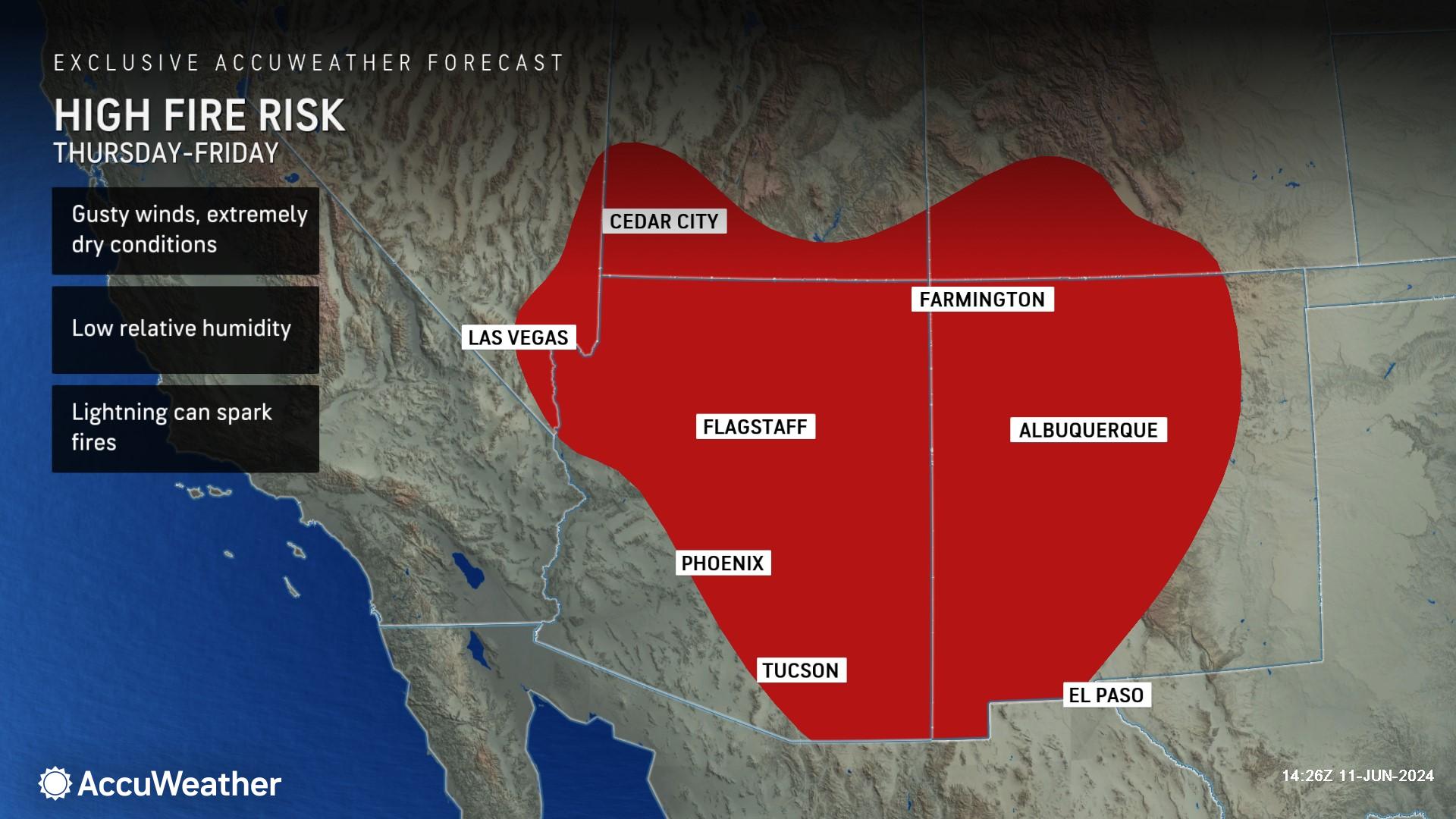
Additional AccuWeather Resources:
AccuWeather HeatWave Counter and Severity Index
First heat wave of year on horizon for Northeast
Resurgence of heat to impact outdoor plans across the West
Sizzling Summer Temperatures Could Lead To Higher Power Bills Across America
Heat exhaustion vs. heatstroke: What are the warning signs and how should you react?



